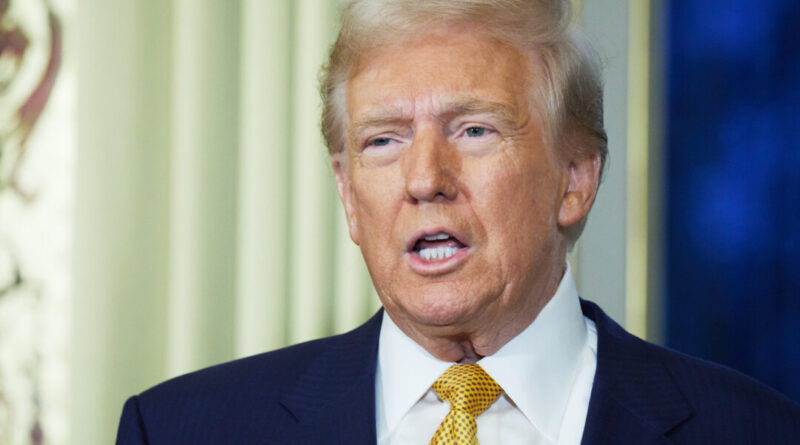Trump Aims to Grant Pardons to Jan. 6 Defendants on His First Day in Office
The reaffirmed commitment was announced following Biden’s contentious choice to grant a pardon to his son, which represented a significant application of his pardon powers.
On December 8, President-elect Donald Trump declared that he would swiftly initiate the process to pardon individuals targeted by the Department of Justice in connection with the January 6, 2021, Capitol riot.
“I’m going to be acting very quickly,” Trump stated in an interview with “Meet the Press” anchor Kristen Welker, elaborating that he would start assessing pardons for the nearly 1,500 people charged in relation to the event from his first day in office.
The commitment to pardon those charged in relation to the day’s events—including many apprehended, convicted, and imprisoned for nonviolent offenses—has remained a key focus of Trump’s campaign throughout the 2024 election.
During the interview, Trump indicated he would review individual cases and mentioned that there “may be some exceptions,” for instance, “if somebody was radical, crazy,” adding that “there might be some individuals associated with Antifa.”
The Capitol riot transpired on January 6, 2021, when protesters entered the building, with many entering through the main doors. Some rioters confronted police officers.
The breach occurred during the “Stop the Steal” rally, which aimed to persuade Congress not to certify the results of the 2020 election amid ongoing debates over voter fraud allegations. Following Trump’s speech at the Ellipse, many attendees marched to the Capitol.
Among those charged in relation to the day’s events, many confront serious allegations, including assault on law enforcement, with some facing heightened charges involving weapons or injuries.
Numerous others have been charged for comparatively minor offenses such as trespassing, with a majority being nonviolent participants. Over 1,400 defendants are accused of entering restricted areas, with a small portion alleged to have been armed.
The Capitol breach is estimated to have inflicted approximately $2.88 million in damages.
At the same time, the prosecution of these individuals has been strongly criticized by Trump and his congressional allies.
Trump further informed Welker that he would refrain from investigating the voter fraud claims that catalyzed the day’s events, though he insisted that he still believed the 2020 election results were a product of widespread voter fraud.
“I have the right to do that, but I’m not interested in that,” Trump stated.
While he asserted that his Department of Justice (DOJ) would not investigate the 2020 election, he maintained that “everyone” on the now-disbanded House Jan. 6 subcommittee “should go to jail.”
This sentiment extended to its former chairman, Rep. Bennie Thompson (D-Miss.) and ranking member Rep. Liz Cheney (R-Wyo.), who lost her bid for reelection.
However, in the interview, Trump also mentioned that he would largely defer decisions regarding prosecutions to his prospective U.S. attorney general, Pam Bondi, and his choice for FBI director, Kash Patel.


